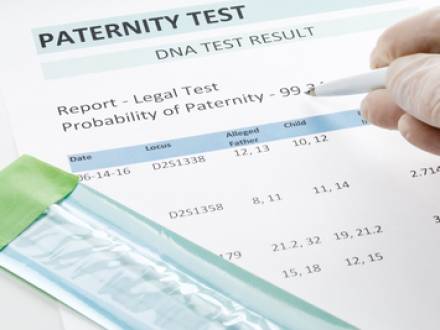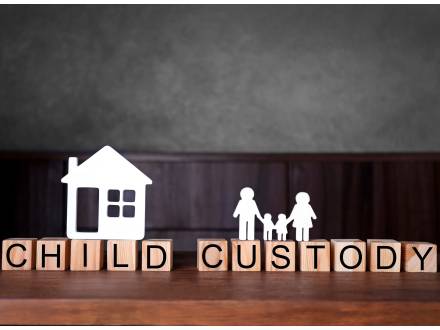Recent Blog Posts
Alcohol Abuse and the Divorce Process in Illinois
 Alcohol abuse does not always lead to divorce, but when it does, it becomes far more complicated, especially when young children are involved. From worries about visitation to concerns about safety and money, substance abuse can influence almost every aspect of a divorce case. If your spouse has a drinking problem, or if you are being accused of alcohol abuse yourself, it is important to understand how Illinois divorce courts could deal with these situations.
Alcohol abuse does not always lead to divorce, but when it does, it becomes far more complicated, especially when young children are involved. From worries about visitation to concerns about safety and money, substance abuse can influence almost every aspect of a divorce case. If your spouse has a drinking problem, or if you are being accused of alcohol abuse yourself, it is important to understand how Illinois divorce courts could deal with these situations.
At the The Law Office of Matthew M. Williams, P.C., our Yorkville, IL divorce attorney approaches cases involving alcohol abuse with both compassion and strategy. With nearly 25 years of experience practicing family law, and a background working with troubled youth and high-conflict families, we understand the damage alcohol misuse can cause and the healing that is possible when families have the right support.
Attorney Williams strives to resolve divorce cases amicably whenever possible, through mediation or collaborative law, while protecting your rights and your children’s well-being. Competitive rates and flexible payment plans are available to ensure access to the help you need.
What Is Included in an Illinois Divorce Decree?
 A divorce decree is more than a final stamp on the end of a marriage. In Illinois, this court-issued document contains the specific terms that will shape your financial life, your parenting responsibilities, and your future legal obligations. For many people, the contents of that decree are the single most important legal outcome of their divorce. Yet too many spouses sign without fully understanding what they are agreeing to or what might happen if the agreement breaks down.
A divorce decree is more than a final stamp on the end of a marriage. In Illinois, this court-issued document contains the specific terms that will shape your financial life, your parenting responsibilities, and your future legal obligations. For many people, the contents of that decree are the single most important legal outcome of their divorce. Yet too many spouses sign without fully understanding what they are agreeing to or what might happen if the agreement breaks down.
As of July 2025, the Illinois Marriage and Dissolution of Marriage Act (750 ILCS 5) governs all divorce decrees across the state. That law gives courts broad authority to decide how to divide property, assign parenting time, and order support. It also allows spouses, through settlement or mediation, to craft tailored agreements that the court can approve. Whether you go to trial or reach an agreement outside of court, the result will be a final judgment that binds both parties.
5 Reasons to Establish Paternity in Illinois
 In Illinois, establishing paternity is not just a legal formality. It is a decision that can shape a child’s emotional, financial, and physical well-being for years to come. Whether you are a mother considering how to secure support for your baby, or a father seeking a relationship with your child, understanding why paternity matters is the first step.
In Illinois, establishing paternity is not just a legal formality. It is a decision that can shape a child’s emotional, financial, and physical well-being for years to come. Whether you are a mother considering how to secure support for your baby, or a father seeking a relationship with your child, understanding why paternity matters is the first step.
Illinois law provides clear paths to determine parentage and protect a child’s best interests. If you are going to be a mother or father and you are not sure whether you want to establish paternity for your child, consider the following information and then contact our Batavia, IL paternity lawyer.
Why Paternity Matters in Illinois
When a child is born to married parents, Illinois law automatically assumes the husband is the legal father. But when a child is born outside of marriage, paternity must be established for the father to have legal rights and responsibilities. This can be done voluntarily by signing a Voluntary Acknowledgment of Paternity or through a court proceeding if there is disagreement about parentage.
When Do You Have to Take Parenting Classes During Divorce?
 If you are getting divorced in Illinois and have children under 18, you are likely required to complete a parenting education class. This requirement is not meant to punish divorcing parents. Rather, Illinois courts believe that families benefit when parents understand the emotional and developmental impact of divorce on children. These courses provide tools that are meant to help parents going through a divorce manage conflict, improve communication, and help their children adjust during the separation process.
If you are getting divorced in Illinois and have children under 18, you are likely required to complete a parenting education class. This requirement is not meant to punish divorcing parents. Rather, Illinois courts believe that families benefit when parents understand the emotional and developmental impact of divorce on children. These courses provide tools that are meant to help parents going through a divorce manage conflict, improve communication, and help their children adjust during the separation process.
As of June 2025, the requirement remains in place across all judicial circuits in Illinois, including Kane County. If you live anywhere in the surrounding area, a North Aurora, IL family law attorney can explain when, how, and why to take these courses and what happens if you do not.
Who Has to Take a Parenting Class in an Illinois Divorce?
In most cases, both parents are required to take a KiDs1st parenting class when they file for divorce and share children under the age of 18. This requirement also applies to cases involving parental allocation of responsibilities (legal custody) or parenting time (physical custody), even if the parents were never married. The court will not finalize your divorce or approve your parenting plan until both parents have completed the class.
A History and Explanation of Alimony
 The issue of alimony during a divorce can be highly contested between separating spouses, especially when one party’s economic means are greater than the other party's. One reason for the conflict caused by alimony is a lack of a true understanding of its definition in Illinois, as well as its historical context in both broad and narrow contexts.
The issue of alimony during a divorce can be highly contested between separating spouses, especially when one party’s economic means are greater than the other party's. One reason for the conflict caused by alimony is a lack of a true understanding of its definition in Illinois, as well as its historical context in both broad and narrow contexts.
It is a common misconception that alimony is a relatively new concept, largely attributed to the increase in the divorce rate observed over the last 30 years. However, the idea dates back hundreds of years. The origins of alimony stem from the divorce principles derived from English laws of coverture. Coverture established a married couple as a single legal entity, thereby merging their identities for legal purposes.
Will I Be Stuck Paying My Spouse’s Student Loans if We Divorce?
 There are currently 42.7 million borrowers with federal loan debt, with an outstanding federal loan balance of $1.693 trillion. Only about 7.79 percent of all student loan debt is private, while 92.2 percent is federal. The average federal student loan balance is $38,375, and approximately 5 percent of all federal student loans were in default as of the end of 2024.
There are currently 42.7 million borrowers with federal loan debt, with an outstanding federal loan balance of $1.693 trillion. Only about 7.79 percent of all student loan debt is private, while 92.2 percent is federal. The average federal student loan balance is $38,375, and approximately 5 percent of all federal student loans were in default as of the end of 2024.
As you might imagine, student loan debt can become a major issue during a divorce. As assets and debts are being divided up, being awarded significant levels of student loan debt can be devastating. For this reason, many spouses going through a divorce are worried that their spouse’s student loan debt could become their own.
The state of Illinois operates under equitable distribution laws rather than community property laws regarding the division of marital assets and debts. Under community property laws, assets and debts are divided 50/50, regardless of which spouse earned the majority of the money or which spouse is responsible for marital debts, although student loan debt can be an exception under some circumstances.
7 Child Custody Tips for Newly Single Parents
 More than one million children across the United States will be forced to deal with the divorce of their parents each year. Many of these children will be younger than six when their parents divorce. Following a divorce, the entire family must adjust to the changes that occur. Some children will move from their homes, which can result in new schools and leaving their friends.
More than one million children across the United States will be forced to deal with the divorce of their parents each year. Many of these children will be younger than six when their parents divorce. Following a divorce, the entire family must adjust to the changes that occur. Some children will move from their homes, which can result in new schools and leaving their friends.
They may also move away from extended family members, such as grandparents, and other trusted and loved people in their lives. Children are usually less equipped than adults to deal with the many changes that result from divorce. Furthermore, children have no control over divorce or any of the other changes that occur. Parents will be determining the allocation of parental responsibilities and parenting time, which are additional things children have no control over.
Talking to Your Adult Children About Divorce
 The primary concern for divorcing parents is often how their children will react to the divorce. That reaction is dependent on many different factors, including the age of the children and the reasons for divorce. Because divorce can be so hard on children, many couples put off divorcing until the children have all graduated and are out on their own. But what about adult children of divorce?
The primary concern for divorcing parents is often how their children will react to the divorce. That reaction is dependent on many different factors, including the age of the children and the reasons for divorce. Because divorce can be so hard on children, many couples put off divorcing until the children have all graduated and are out on their own. But what about adult children of divorce?
We assume, because they are adults, that they can handle their parents’ divorce, but this is not always the case. In fact, adult children can face many challenges when their parents divorce, even though these challenges are certainly different from those of a six-year-old or a fifteen-year-old. Adult children can experience a profound psychological reassessment of self-identity and family memories when their parents divorce later in life.
Things You Need to Know About Visitation Rights in Illinois
 Custody X Change, an app for visitation and parenting plans, did a nationwide study regarding which parent in each state was more likely to be awarded more visitation time. The state of Illinois ranked 47th for the amount of time fathers received, with an average of 23.1 percent. This equals approximately 83 days per year. Unfortunately, the study did not go in-depth regarding why fathers in Illinois appeared to receive less time with their children than mothers.
Custody X Change, an app for visitation and parenting plans, did a nationwide study regarding which parent in each state was more likely to be awarded more visitation time. The state of Illinois ranked 47th for the amount of time fathers received, with an average of 23.1 percent. This equals approximately 83 days per year. Unfortunately, the study did not go in-depth regarding why fathers in Illinois appeared to receive less time with their children than mothers.
In Illinois, visitation is now called "parenting time," and custody decisions are known as the "allocation of parental responsibilities." Regardless of what it is called, courts typically assume that spending quality time with each parent is in the child’s best interests as long as this poses no risk to the child’s safety and well-being. However, there are also situations in which the courts may place conditions on parenting time, such as requiring a parent to abstain from drugs or alcohol prior to and during parenting time.
What Happens if the House Goes into Foreclosure During Divorce?
 Foreclosures are on the rise in Illinois, ranking the state as the ninth highest for home foreclosures. This translates to one out of every 3,753 homeowners facing foreclosure of their homes. This unfortunate trend shows little signs of slowing or reversing.
Foreclosures are on the rise in Illinois, ranking the state as the ninth highest for home foreclosures. This translates to one out of every 3,753 homeowners facing foreclosure of their homes. This unfortunate trend shows little signs of slowing or reversing.
Foreclosure by itself is a difficult process for a couple to weather. A couple who is in the middle of a divorce when served with a foreclosure notification can see the difficulties compound rapidly, especially when both spouses are not on the same page regarding how to deal with the foreclosure.
There is much information to disseminate and several options to discuss. If you and your spouse are divorcing and are now facing the foreclosure of your marital home, it can be extremely beneficial to discuss the situation with an experienced Oswego, IL divorce lawyer.









